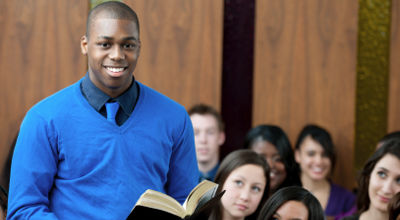Supreme Court Rebuffs Atheists in Victory for Religious Freedom
The Supreme Court denied Freedom From Religion Foundation’s appeal following a Fourth Circuit’s decision allowing students to gain elective school credit for religion courses taken off-campus during school hours, a program known as “released time.”
“It took three years of litigation for them to figure it out, but Freedom From Religion Foundation now knows what the rest of us have always known: It’s okay for public schools to treat religious off-campus courses on equal terms with non-religious off-campus courses,” said Eric Rassbach, deputy general counsel at the Becket Fund for Religious Liberty, the nonprofit, public-interest law firm that represented the defendant school district.
In 2009 Freedom From Religion Foundation sued an urban school district, Spartanburg County School District No. 7 in South Carolina, over the program, claiming it was a violation of the Constitution’s Establishment Clause. The school district retained the Becket Fund for Religious Liberty along to defend it, along with Spartanburg firm Lyles, Darr & Clark, LLP. The school district won both in the district court and the Fourth Circuit Court of Appeals in Richmond, Va.
The unanimous decision of the Fourth Circuit held: “[T]he program properly accommodates religion without establishing it, in accordance with the First Amendment.” The court further stated, “[The program] accommodates the ‘genuine and independent choices’ of parents and students to pursue [religious] instruction.”
“This is a big win for public school students and for religious education,” said Lori Windham, senior counsel with the Becket Fund, who successfully argued the case to the Fourth Circuit. “The Supreme Court’s rejection of this case is a blow against anti-religious legal theories that would treat religion with suspicion.”
For more than 50 years, courts have routinely held that off-campus released time programs do not violate the Constitution by promoting religion, but merely accommodate the wishes of students and parents. Nationwide, more than 250,000 children in 32 states participate in released time programs each year. In South Carolina alone, more than 12,000 students attend released time classes each week.
“We are pleased to learn that the Supreme Court denied review of this litigation,” said Dr. Russell W. Booker, superintendent of Spartanburg County School District No. 7. “After three years of litigation, the courts have confirmed what we knew all along: The School District is acting fully in accordance with the law in carrying out its mission of providing our families with choice options in the education of their children. We are also thankful for the able work of our attorneys, including the Becket Fund, which defended this case at no cost to the School District.”
The Court’s decision supports released time programs across South Carolina and throughout the country. It also affirms the constitutionality of the relationship between private schools and public schools.














































